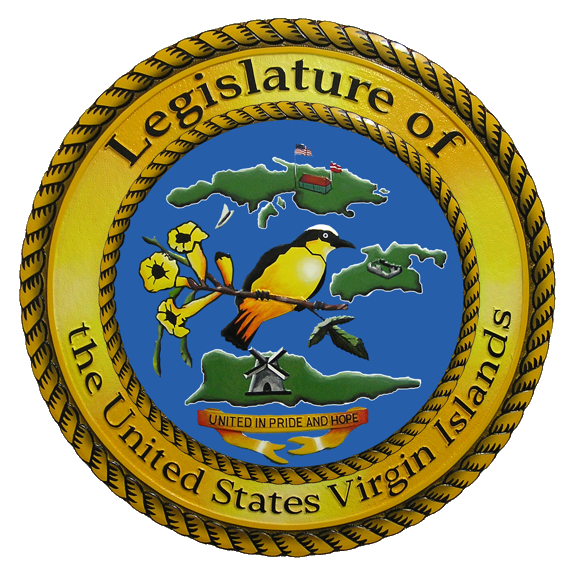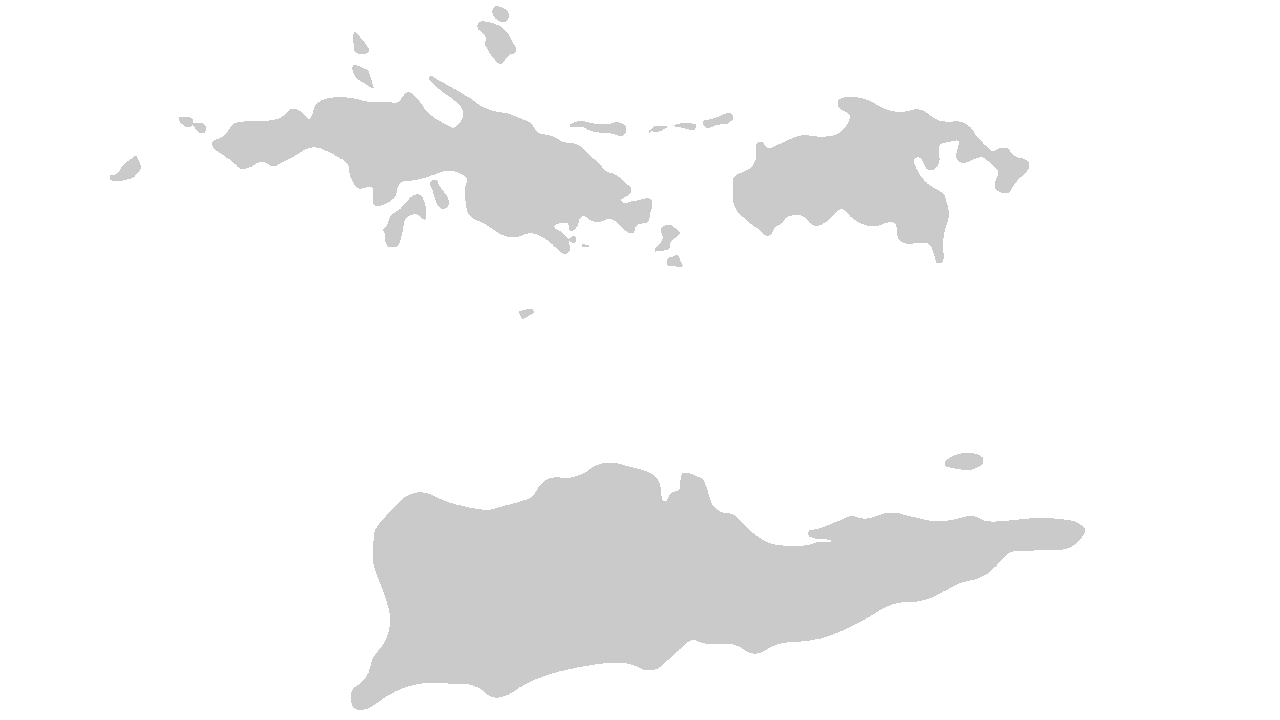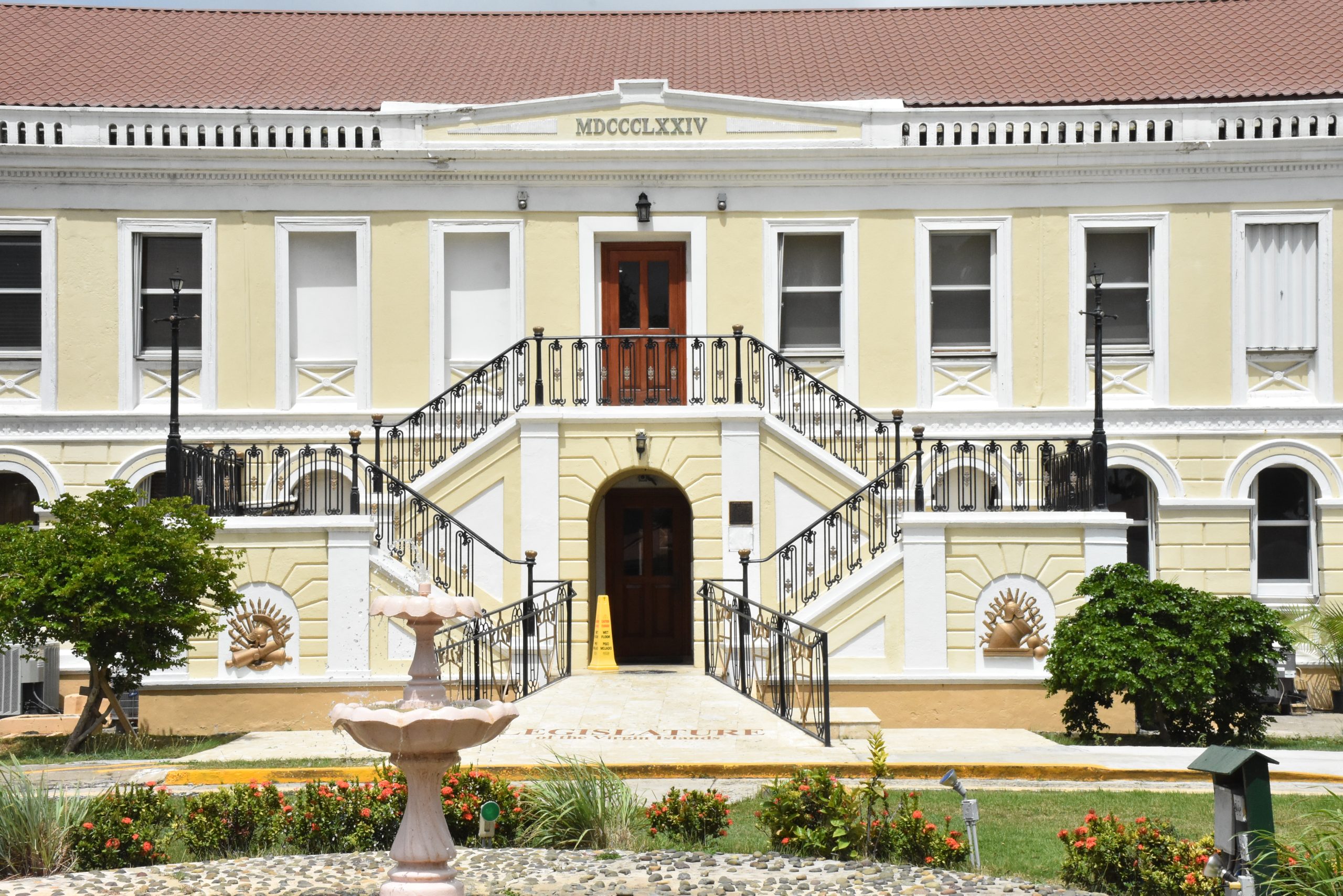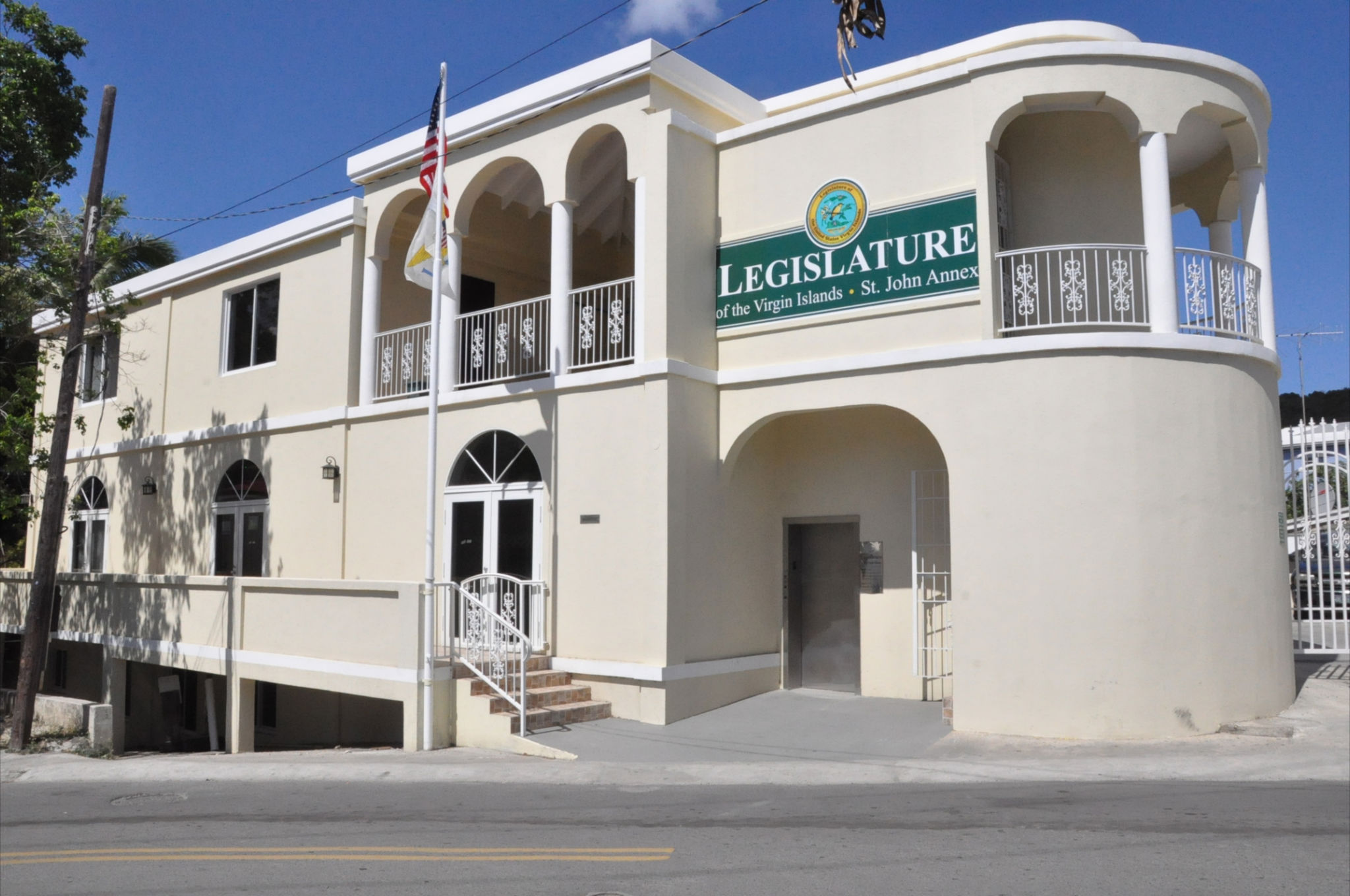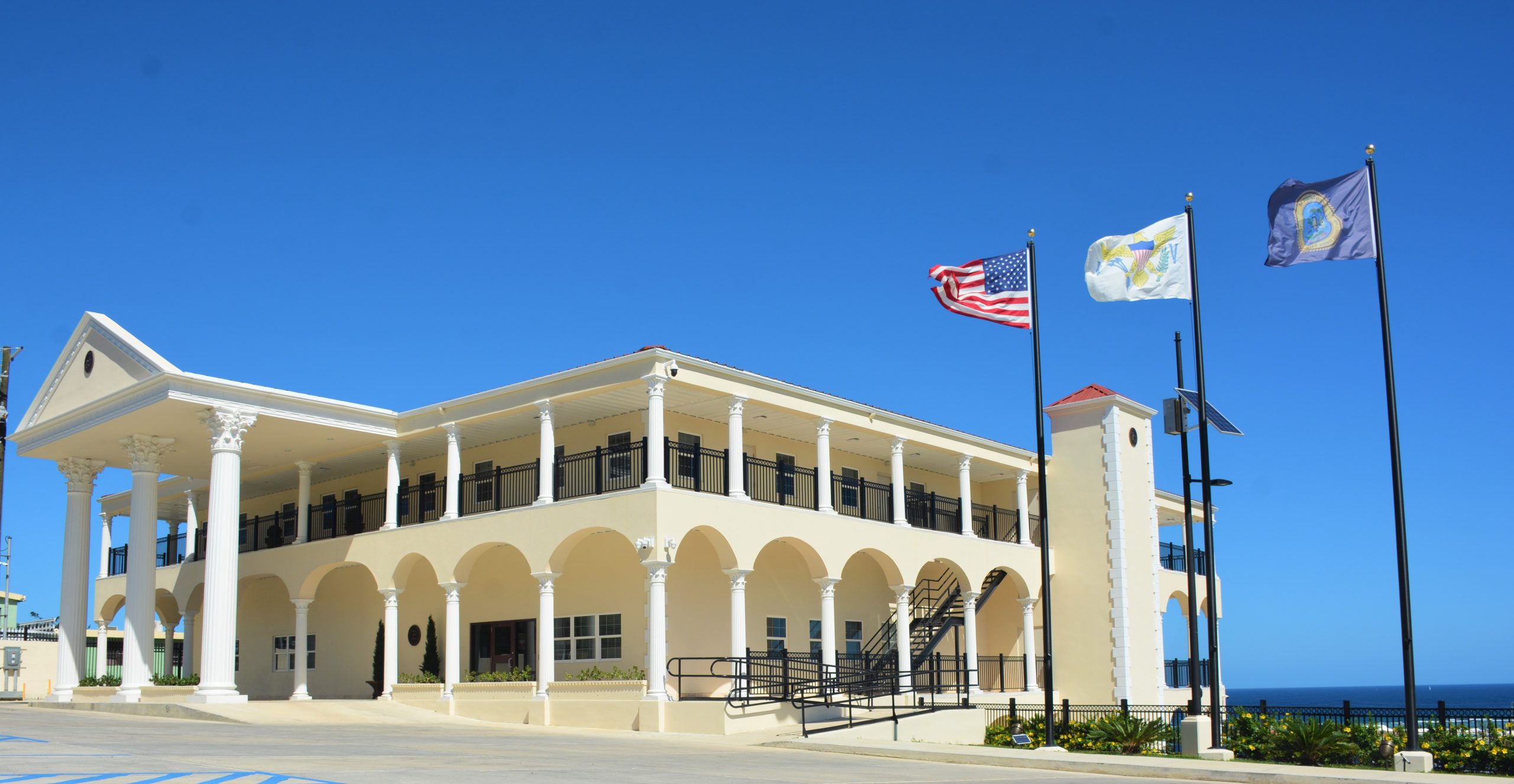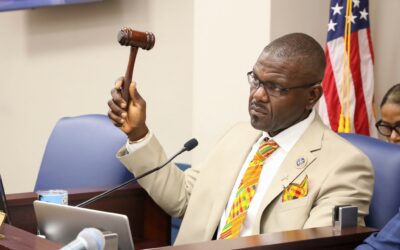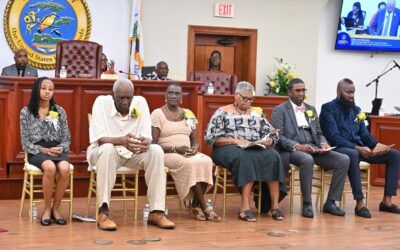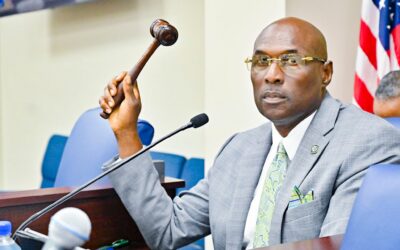COMMITTEE ADVANCES NOMINATIONS AND BILLS
Published: Jun 14, 2024
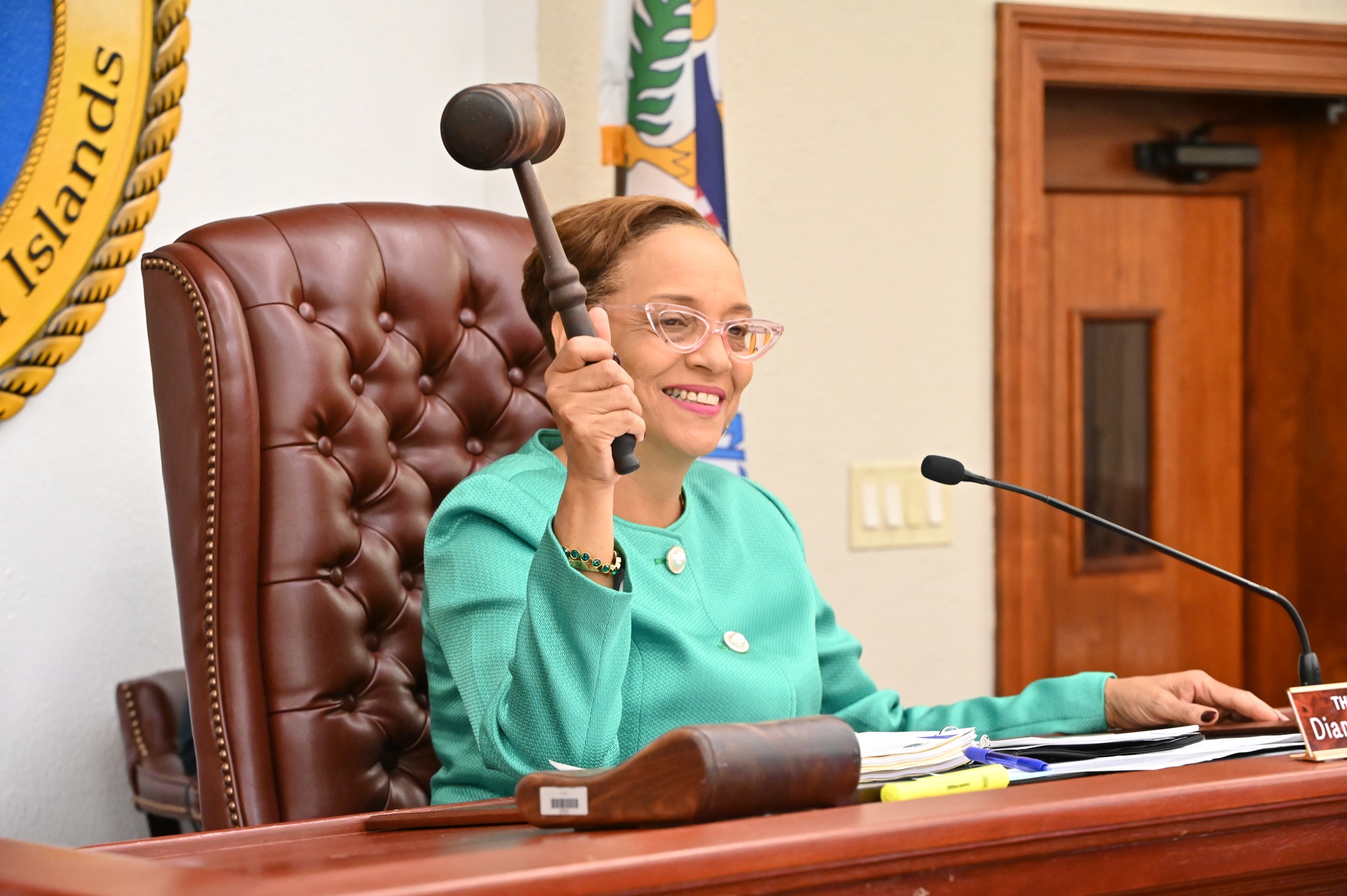
ST. THOMAS – The 35th Legislature of the Virgin Islands’ Committee on Rules and Judiciary, chaired by Senator Diane T. Capehart, met in the Earle B. Ottley Legislative Hall. Lawmakers considered nominations to the Virgin Islands Waste Management Authority Board of Directors and vetted two bills. Approved items on today’s agenda will be forwarded to the full body at the next scheduled Legislative Session.
Lawmakers approved the Governor’s nominations of Lindel A. Williams to the Virgin Islands Waste Management Authority Board of Directors – St. Croix District and Conn J. Davis II to the Virgin Islands Waste Management Authority Board of Directors – St. Thomas District. Chairwoman Capehart thanked the nominees for their willingness to serve, stating that they “bring a wealth of experience to the board.” Capehart, making mention of the recent blackouts in the St. Thomas – St. John District, stated that “we needed to start looking at ways of clean and alternative energy, particularly waste to energy. She continued to discuss her Waste to Energy Bill in draft phase that amends Title 19 to establish a sustainable solid waste management hierarchy and require mandatory source separation of solid waste in the Territory, to require a private and/or public collection property to provide adequate waste collection on the property and annually provide programs that communicate information about source separation requirements to individuals who discard solid waste at the property and require a collector to label waste containers and Waste Management Authority to submit quarterly reports.
Lawmakers then considered Bill No. 35-0032, An Act repealing and reenacting Title 18 Virgin Islands Code, chapter 1, section 2, relating to government employees’ eligibility for elected office, to allow government employees to run for political office while actively employed unless specifically prohibited by federal or other laws. The measure was sponsored by Senators Marise C. James and Donna A. Frett-Gregory. Caroline Fawkes, Supervisor of Elections of the Election System of the Virgin Islands, delivered comments on the proposed measure. In the proposed bill, a government employee may become a candidate for nomination and election to any public office and remain employed with the Government of the Virgin Islands without taking a leave of absence. Fawkes voiced concern that most of the election system’s laws are specific with dates or days, not flexible timelines. She mentioned that date uncertainties could cause confusion for candidates, their managers, and the public and could cause low turnout and participation in the electoral process. ESVI recommended an amendment that would mandate all candidates take 60 days leave instead of 80 days leave for political party candidates who participate in the primary election and 60 days instead of 180 days for those not in a political party who participate in the general election. There were other issues with the bill as lawmakers discussed their concerns regarding abuse of government resources and time, thus compromising the quality of work and productivity.
Cindy Richardson, Director of the Division of Personnel, stated that the bill was supported by the Division. She recommended that there should be language that directly addresses the process with respect to leave requirements in the event of a runoff or special election. If an employee does not have the required accrued leave and must take leave without pay, this would result in a break in service regarding retirement eligibility and the continued responsibility of paying the employee’s share of the insurance premium. Richardson’s testimony stated that, as proposed, the reduced length of time of any impact would not change the bill’s intent or create an undue financial burden for any employee seeking to run for office. Joss Springette, Chief Negotiator of the Office of Collective Bargaining, stated that the current language in the statute provides that employees in any branch of government are eligible for nomination as candidates for public office. Once they become a candidate, they must take a leave of absence from the date of filing their nomination papers until the general election date.
If the employee is a candidate in a primary election and is not nominated, the leave of absence may end immediately after the primary. Employees may use accrued annual leave during the leave of absence or take leave without pay. Employees who become candidates for party offices, those serving as party officers, candidates for the board of election, and candidates for the Board of Election are not required to take a leave of absence. Employees must take a leave of absence for a brief period before the primary. If the employee is successful in the primary, they can return to work until the general election. The employee is then required to take another leave of absence before the general election. Other candidates who did not run in the primary but will run in the general election must take a leave of absence for the same time. An employee’s leave of absence would not impact seniority or other employment rights. Employees paid with federal funds are subject to restrictions imposed by federal laws or regulations. However, with no second to the amendments or the motion made on the measure, the proposed bill failed and remains in Committee.
Additionally, Senators considered Bill No. 35-0117, An Act amending Title 27 Virgin Islands Code, Chapter 15, sections 421a and 422 relating to the qualifications, term limits, and duties of the members of the Real Estate Commission. The measure was sponsored by Senator Novelle E. Francis, Jr.
Horace Graham, Assistant Commissioner of the Virgin Islands Department of Licensing and Consumer Affairs, expressed support for the proposed measure. Graham called the measure a progressive step forward for the real estate industry and the Virgin Islands Community. He stated that the measure allowed for enhanced professional standards and promoted diverse representation and geographic balance. Also, the measure introduces term limits of members and establishes a clear ground for removal of them. Furthermore, the measure is intended to improve transparency and engagement. Graham stated that the measure would introduce many reforms that would strengthen the structure of the Virgin Islands Real Estate Commission and strongly urged the body to pass the measure.
Laurent Alfred, Esq., VI Real Estate Commission Chairperson, also voiced support for the proposed bill. Alfred and their fellow members of the Real Estate Commission stated that the changes would enable the Real Estate Commission to serve the people of the Virgin Islands better. The bill would require at least two members to have never been licensed as a real estate professional in any jurisdiction and at least three, but not more than four, to hold a valid principal broker or broker associate license. At least one member of the commission must be licensed as a property manager. One of the members must also reside on the island of St. John. A term limit of 8 years would be introduced, ensuring healthy turnover. The bill also requires that the Commission publish a comprehensive, updated list of persons who hold licenses issued by the Commission. The proposed measure was voted upon favorably.
Senators present at today’s Committee meeting included: Chair Diane T. Capehart, Committee Members Milton E. Potter, Angel L. Bolques, Jr., Kenneth L. Gittens, Franklin D. Johnson, Marise James, Carla J. Joseph, and non-committee members Novelle E. Francis, Jr., Alma Francis Heyliger, and Ray Fonseca.
The Division of Public Affairs is committed to providing the community with accurate information on proceedings and other events at the Legislature of the Virgin Islands. Visit legvi.org.
####
Related Content
COMMITTEE RECEIVES UPDATES FROM VIFEMS AND POLICE DEPARTMENT
ST. CROIX, VI – The 36th Legislature of the Virgin Islands’ Committee on Homeland Security, Justice, and Public Safety, led by Senator Clifford A. Joseph, Sr, met in the Frits E. Lawaetz Legislative Conference Room. Lawmakers received updates from the Virgin Islands...
COMMITTEE HOSTS PERMA PLAQUE CEREMONY FOR SEVERAL HONOREES
ST. THOMAS, VI - The Legislature of the Virgin Islands hosted a Permanent Plaque Ceremony at Earle B. Ottley Legislative Hall to formally recognize and commemorate individuals whose service, leadership, and contributions have left a lasting impact on the...
COMMITTEE VETS LEASE AGREEMENTS, MEASURE TO REDESIGN FUNDING SOURCES FOR SEVERAL ENTITES, MODIFY RENEWAL PROVISIONS FOR INSURANCE PRODUCER LICENSES, ESTABLISH “IMPAIRED DRIVING AND HIGHWAY SOBRIETY CHECKPOINT PROGRAM SAFETY FUND”
ST. CROIX, VI - The Committee on Budget, Appropriations, and Finance, led by Senator Novelle E. Francis, Jr. met in the Earle B. Ottley Legislative Hall. Lawmakers considered various lease agreements for the island of St. Thomas. Additionally, lawmakers vetted...
